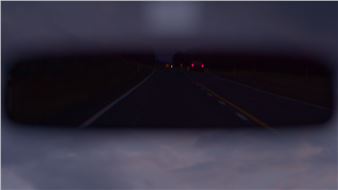Biographies of Transition: Too Busy To Think
Too Busy To Think (as a term, condition, and exhibition) emerges
from the nature of the time we share with machines. Machines that think. We, as
machines.
Thinking is not an ability attributed only to human beings. And thinking is
not simply an inherent attribute of the human being; it can also be something
that is fought for, it can be a political act, a radical attainment.
Our zeitgeist desperately calls Hannah Arendt back; The Origins of
Totalitarianism (1951) a tool for understanding the forms of isolation,
solitude, and loneliness we experience today. Thinking requires a kind of
solitude, according to Arendt, but not loneliness or isolation1. It
needs friendship, company, and sharing.
ArendtÔÇÖs term ÔÇ£MusseÔÇØcannot be translated into English, but can be taken as
a term for a particular type of leisure. Musse is the German version of the
Latin concept of ÔÇ£otiumÔÇØ denoting the free time (we have for contemplation)
when we are not busy (opposed to negotium, the time when we are not
free for contemplation, i.e. when we are busy). Muse, or museum can not be
etymologically separated from this discussion.
Biographies of Transition, parallel spaces of intimacy,
transformative environments of crisis, psycho-geographies of conflict, and the
political narratives of human lives are each given consideration by revisiting
her remonstrance. In a 1934 letter to Gershom Scholem Arendt
wrote: ÔÇ£One feels very lonely in this country; this has to do in
particular with the fact that everyone is very busy and that for most people the
need for leisure simply ceases to exist after a certain amount of
time.ÔÇØ
Through conversations with its contributors, this exhibition intends to
edit: it edits a collection of works, forming a grammar that not only narrates
the impact of individual biographies on the works, but also the role of nature,
environment, and othersÔÇöall other agentsÔÇöin the process of research and
production. Becoming a temporary space for the sharing of life and work,
inevitably, the exhibition comes to refer to the psychoanalytic of private and
public, labour and leisure, and the role of the contemporary self, its
portraiture, in presentation languages.
Public institutions demand a critical duality of questions: How much
does it cost? What does it mean? These questions can be asked of
exhibitions, institutions, and human beings, as fragile and temporary forms of
life alike.

Recommended for you
Too Busy To Think (as a term, condition, and exhibition) emerges
from the nature of the time we share with machines. Machines that think. We, as
machines.
Thinking is not an ability attributed only to human beings. And thinking is
not simply an inherent attribute of the human being; it can also be something
that is fought for, it can be a political act, a radical attainment.
Our zeitgeist desperately calls Hannah Arendt back; The Origins of
Totalitarianism (1951) a tool for understanding the forms of isolation,
solitude, and loneliness we experience today. Thinking requires a kind of
solitude, according to Arendt, but not loneliness or isolation1. It
needs friendship, company, and sharing.
ArendtÔÇÖs term ÔÇ£MusseÔÇØcannot be translated into English, but can be taken as
a term for a particular type of leisure. Musse is the German version of the
Latin concept of ÔÇ£otiumÔÇØ denoting the free time (we have for contemplation)
when we are not busy (opposed to negotium, the time when we are not
free for contemplation, i.e. when we are busy). Muse, or museum can not be
etymologically separated from this discussion.
Biographies of Transition, parallel spaces of intimacy,
transformative environments of crisis, psycho-geographies of conflict, and the
political narratives of human lives are each given consideration by revisiting
her remonstrance. In a 1934 letter to Gershom Scholem Arendt
wrote: ÔÇ£One feels very lonely in this country; this has to do in
particular with the fact that everyone is very busy and that for most people the
need for leisure simply ceases to exist after a certain amount of
time.ÔÇØ
Through conversations with its contributors, this exhibition intends to
edit: it edits a collection of works, forming a grammar that not only narrates
the impact of individual biographies on the works, but also the role of nature,
environment, and othersÔÇöall other agentsÔÇöin the process of research and
production. Becoming a temporary space for the sharing of life and work,
inevitably, the exhibition comes to refer to the psychoanalytic of private and
public, labour and leisure, and the role of the contemporary self, its
portraiture, in presentation languages.
Public institutions demand a critical duality of questions: How much
does it cost? What does it mean? These questions can be asked of
exhibitions, institutions, and human beings, as fragile and temporary forms of
life alike.
















